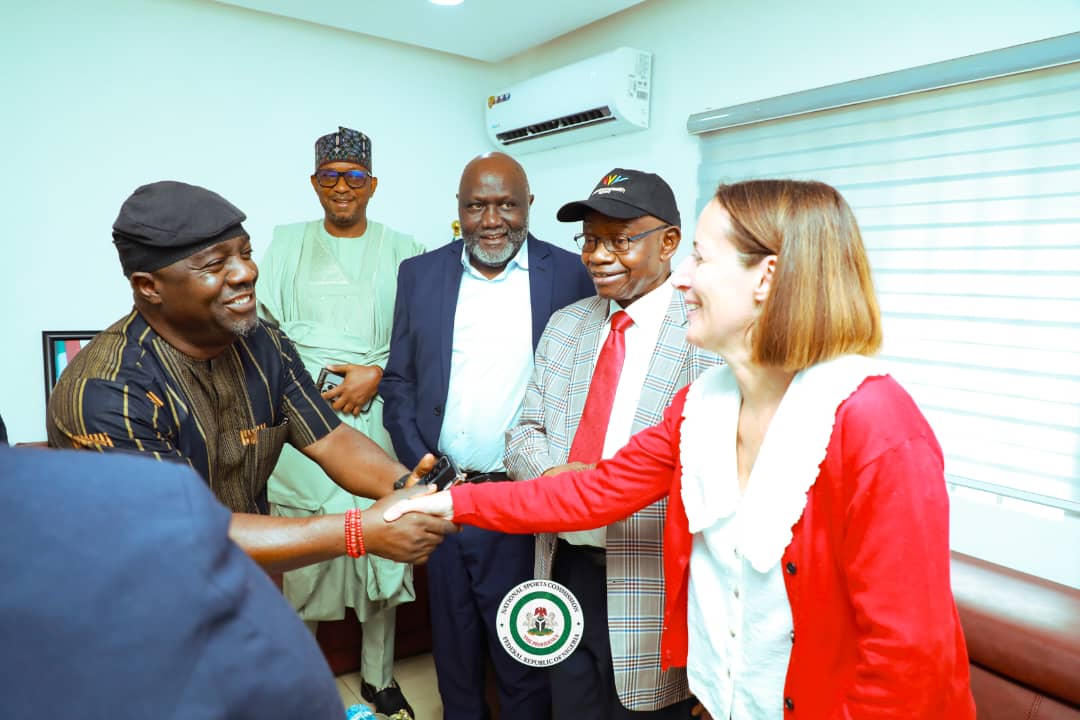Featured
Minimum Wage: FG, Labour meeting ends in deadlock

…Negotiations to continue Sept. 4
The Joint National Public Service Negotiating Council (JNPSNC), and representatives of the Federal Government will reconvene on Sept. 4 to continue negotiations on the new national minimum wage.
The Gleamer News reports that the negotiators adjourned to the new date to allow President Muhammadu Buhari to wade into the disagreement of relativity and consequential adjustments on the new minimum wage.
The meeting, which held in Abuja on Friday, had the Permanent Secretaries of finance and labour ministries, as well as representative of the National Salaries, Incomes and Wages Commission in attendance.
Mr Lawrence Amaechi, one of the Labour leaders in the negotiations, said that both parties had agreed to consider their stance and allow the President to decide on the issue.
“Both parties are holding on to their different positions on the relativity/consequential adjustment of salaries. We shall submit that stance to Mr President to enable him wade into the matter.
“We have, however, adjourned till September 4, to get the outcome from the team expected to take our positions to the President,” he said.
Amaechi, who is also the National President, Nigeria Civil Service Union, said that payment of the new minimum wage was long overdue, urging government to be proactive to avoid arrears which could create another round of agitations by workers.
It will be recalls that the new minimum wage bill was signed into law by President Muhammadu Buhari in April.
However, deliberations continued as the issue of relativity/consequential adjustment of salaries still persisted.
The federal government, on May 14, inaugurated the Relativity/Consequential Adjustment Committee which, in turn, set up a Technical Sub-Committee to work out the template for the adjustment of salaries of public service employees.
In July, government proposed a 10 per cent increment for level seven to 14, and a 5.5 per cent increment for workers on level 15 to 17, a proposal Labour outrightly rejected.
Featured
Nigeria’s Historic Bid for the 2030 Commonwealth Games: A Call for National and Global Support

Joel Ajayi
Nigeria is poised to make history as it seeks to host the Centenary Commonwealth Games in 2030, a monumental opportunity that promises to transform the nation’s economy, infrastructure, and global standing.
More than a sporting spectacle, the Games would serve as a catalyst for development across multiple sectors, leaving behind a legacy of national pride and sustainable growth.
The benefits of hosting the Games extend far beyond the sports arena. Nigeria stands to gain both empirical and non-empirical advantages, with direct, indirect, and induced impacts that will touch every corner of society. Infrastructural development will take center stage, with new facilities such as indoor sports halls, conference centers, and improved road networks reshaping urban landscapes while strengthening the nation’s capacity to host future international events.
Economic growth is another significant dividend. Over 10,000 jobs are expected to be created, spanning construction, facility management, event planning, and tourism services.
The hospitality industry will undergo major improvements as hotels and resorts are upgraded to meet international standards, while local restaurants, lounges, and tourist attractions will see a surge in patronage from international visitors. Small and medium enterprises, particularly in the transport, finance, and food service sectors, will become some of the greatest beneficiaries, as the Games generate new demand and expand opportunities for local businesses.
The Commonwealth Games will also accelerate the growth of Nigeria’s sports industry.
Investments in training facilities, coaching, and talent development will inspire a new generation of athletes, ensuring long-term benefits that extend beyond 2030, a major focus of the President Bola Tinubu administration.
At the same time, the process of preparing for the Games will create opportunities for Nigerians to learn new crafts, acquire technical skills, and engage in global-standard event management, thereby strengthening human capacity and innovation across industries.
Mallam Shehu Dikko, Chairman of the Nigeria Sports Commission, and Hon. Bukola Olopade, the Director General, have been widely recognized for their tireless and visionary leadership in repositioning Nigeria’s sporting sector.
Their commitment to facilitating infrastructural development and strengthening grassroots sports development has laid the foundation for Nigeria’s bold bid to host the 2030 Commonwealth Games. Under their leadership, the NSC is fostering strategic partnerships and driving innovation in sports administration, they have demonstrated the nation’s readiness to stage an event of such global magnitude.
Beyond the tangible gains, the hosting of the 2030 Commonwealth Games carries profound symbolic value. It would be a moment of unity and pride, a chance for Nigeria to showcase its cultural richness, resilience, and excellence to the world.
As a centenary edition, the Games would stand as a historic milestone not just for the Commonwealth but for Nigeria itself, cementing its place on the global stage as a capable, ambitious, and forward-looking nation.
The gains from hosting the Commonwealth Games can never be undermined or overemphasized. This is Nigeria’s time to step forward and show the world our resilience, and excellence. We call on every Nigerian, across sectors and communities, to support this noble aspiration.
Nigeria’s pursuit of the 2030 Commonwealth Games is a vision for transformation, a blueprint for national development, and a legacy project that will inspire generations to come.
-

 Featured6 years ago
Featured6 years agoLampard Names New Chelsea Manager
-

 Featured5 years ago
Featured5 years agoFG To Extends Lockdown In FCT, Lagos Ogun states For 7days
-

 Featured6 years ago
Featured6 years agoChildren Custody: Court Adjourns Mike Ezuruonye, Wife’s Case To April 7
-

 Featured6 years ago
Featured6 years agoNYSC Dismisses Report Of DG’s Plan To Islamize Benue Orientation Camp
-

 Featured4 years ago
Featured4 years agoTransfer Saga: How Mikel Obi Refused to compensate me After I Linked Him Worth $4m Deal In Kuwait SC – Okafor
-
Sports3 years ago
TINUBU LAMBAST DELE MOMODU
-

 News9 months ago
News9 months agoZulu to Super Eagles B team, President Tinubu is happy with you
-
Featured6 years ago
Board urges FG to establish one-stop rehabilitation centres in 6 geopolitical zones
